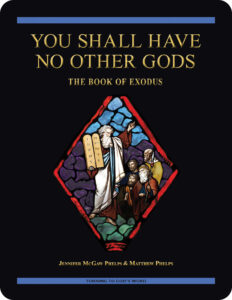 You Shall Have No Other Gods:
You Shall Have No Other Gods:
The Book of Exodus
Lesson 11 Final Plague: Death of the Firstborn
the book of Exodus 12:29—13:16
Revised Standard Version Catholic Edition (RSVCE)*
New American Bible Revised Edition (NABRE)*
Catechism of the Catholic Church
ex libris (in our library)
glossary for the book of Exodus
cross references in the book of Exodus
next lesson: Deliverance Through the Red Sea
This material coordinates with Lesson 11 on pages 53–57 in the study book You Shall Have No Other Gods: The Book of Exodus.
And God spoke all these words, saying, ‘I am the LORD your God, who brought you out of the land of Egypt, out of the house of bondage. You shall have no other gods before me. You shall not make for yourself a graven image, or any likeness of anything that is in heaven above, or that is in the earth beneath, or that is in the water under the earth; you shall not bow down to them or serve them; for I the LORD your God am a jealous God, visiting the iniquity of the fathers upon the children to the third and the fourth generation of those who hate me, but showing mercy to thousands of those who love me and keep my commandments.”—the book of Exodus 20:1–6
welcome to our in-depth study of the book of Exodus
We invite interested groups and individuals to check out the sample first lesson from this 28- lesson Turning to
lesson Turning to  God’s Word Catholic Bible study. These online study pages link to our free lesson video overviews, as well as to a glossary and cross references in the biblical text. Other study aids include maps, additional commentary, and prayers based on the primary Scripture in each lesson. You Shall Have No Other Gods: The Book of Exodus has been granted an imprimatur and can be purchased from our website shop. If you have a Bible-study question or comment, click on one of the “ask us your question” or “what do you think” buttons on any online study page.
God’s Word Catholic Bible study. These online study pages link to our free lesson video overviews, as well as to a glossary and cross references in the biblical text. Other study aids include maps, additional commentary, and prayers based on the primary Scripture in each lesson. You Shall Have No Other Gods: The Book of Exodus has been granted an imprimatur and can be purchased from our website shop. If you have a Bible-study question or comment, click on one of the “ask us your question” or “what do you think” buttons on any online study page.
open with prayer
It’s always wise to begin any Bible study with prayer, whether reading the Scriptures alone or meeting with others in a discussion group. You can pray using your own words or use one of the opening prayers on our website. We especially like the following:
Lord Jesus, you promised to send your Holy Spirit to teach us all things.
As we read and study your word today,
allow it to touch our hearts and change our lives. Amen.
let’s review—the book of Exodus 10:21—12:28
Lesson 10 A Plague of Darkness & a Final Warning describes the ninth plague against the Egyptians. Pharaoh is angry when Moses insists that the Israelites be allowed to leave Egypt with their flocks, and he sends Moses away, vowing that the next time Moses sees Pharaoh’s face Moses will die. The LORD shares with Moses what’s going to happen as a result of the tenth plague—the death of all first-born males. This includes the first-born sons of the Israelites, but Moses explains that if the Israelites follow the LORD’s instructions to slaughter a lamb, paint its blood on the lintels of their houses, eat its roasted flesh, and stay indoors when the angel of death passes by, they’ll be safe. God also issues instructions for the Israelites to hold an annual memorial to mark the day when the LORD secures their freedom.
map notes—the Exodus begins abruptly
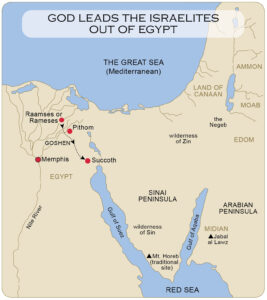 Following the death of all of the first-born male Egyptians, Pharaoh summons Moses and Aaron in the night and insists that they and all of the Israelites leave Egypt—with women, children, cattle, and all of their possessions. The book of Exodus 12:34 records that the Israelites’ departure was so hasty that there wasn’t time for their bread dough to rise, so they carried the unleavened dough with them. The book of Exodus 12:35–36 records that the Israelites counted among their possessions silver and gold jewelry and clothing that the Israelites asked for and received from the Egyptians. The first leg of their journey is from Rameses to Succoth. Click on the map (right) to enlarge it. The original map is on page 56 in You Shall Have No Other Gods: The Book of Exodus.
Following the death of all of the first-born male Egyptians, Pharaoh summons Moses and Aaron in the night and insists that they and all of the Israelites leave Egypt—with women, children, cattle, and all of their possessions. The book of Exodus 12:34 records that the Israelites’ departure was so hasty that there wasn’t time for their bread dough to rise, so they carried the unleavened dough with them. The book of Exodus 12:35–36 records that the Israelites counted among their possessions silver and gold jewelry and clothing that the Israelites asked for and received from the Egyptians. The first leg of their journey is from Rameses to Succoth. Click on the map (right) to enlarge it. The original map is on page 56 in You Shall Have No Other Gods: The Book of Exodus.
 watch for the antagonists to change (53:01)
watch for the antagonists to change (53:01)
Although Pharaoh and the Egyptians have been the major obstacle preventing the  Israelites from getting on their way to the Promised Land, once the Israelites leave Egypt the antagonists become Moses—and to a lesser extent Aaron. The second half of the book of Exodus focuses on the journey in the wilderness. Turning to God’s Word author Matthew Phelps points out it’s significant that the people fail to arrive in the Promised Land in this second book of the Torah. Their journey or exodus is framed by the Passover, an event that remains foundational for Christians. It turns out that Moses is unable to lead
Israelites from getting on their way to the Promised Land, once the Israelites leave Egypt the antagonists become Moses—and to a lesser extent Aaron. The second half of the book of Exodus focuses on the journey in the wilderness. Turning to God’s Word author Matthew Phelps points out it’s significant that the people fail to arrive in the Promised Land in this second book of the Torah. Their journey or exodus is framed by the Passover, an event that remains foundational for Christians. It turns out that Moses is unable to lead  the people into the Promised Land, a type of heaven. That remains for Jesus to do. In the meantime, the earthly journey into the land of Canaan is completed under the leadership of Joshua, whose name in Hebrew is Jeshua, a name that he shares with Jesus. The Hebrew name means “savior” or “the LORD is my salvation.” The liturgy of the original Passover is critical for our commemoration of the Passover.
the people into the Promised Land, a type of heaven. That remains for Jesus to do. In the meantime, the earthly journey into the land of Canaan is completed under the leadership of Joshua, whose name in Hebrew is Jeshua, a name that he shares with Jesus. The Hebrew name means “savior” or “the LORD is my salvation.” The liturgy of the original Passover is critical for our commemoration of the Passover.
The Scripture ranges for the videos that accompany this Catholic Bible study from Turning to God’s Word match the Scripture ranges for the sets of questions in You Shall Have No Other Gods: The Book of Exodus. You can follow along as Turning to God’s Word author Matthew Phelps discusses Lesson 11, “Final Plague: Death of the Firstborn,” on pages 53–57 in the study book.
what happens to Pharaoh’s vow?
In the book of Exodus 10:28, Pharaoh made this vow: “Get away from me; take heed to yourself; never see my face again; for in the day you see my face you shall die.” The book of Exodus 12:31–32, however, records that Pharaoh summons Moses and Aaron in the middle of the night—and neither of them die as a result of seeing Pharaoh’s face. It’s common knowledge among the Israelites that one cannot see God’s face and live, so perhaps the author of the book of Exodus is pointing out that Pharaoh isn’t the god he seems to have been acting like he thought he was.
 ? There’s at least one other possible reason why Pharaoh doesn’t have Moses and Aaron killed when he summons them after the tenth plague. What might that reason be?
? There’s at least one other possible reason why Pharaoh doesn’t have Moses and Aaron killed when he summons them after the tenth plague. What might that reason be?
? Consider whether something else might be at play when Pharaoh fails to make good on his threat against Moses and Aaron’s life.
the tenth plague isn’t really over yet
The final plague is more universal than its consequences suggest. The lives of all firstborn are owed in perpetuity as a result. This is the beginning of the idea of the ban that starts to be more important in the Books of Joshua and Judges. That’s why first-born males of animals and humans have to be redeemed at this time. Their lives are owed to God under this plague, which represents the sin and death that reign over all of humanity—as well as the possibility of that life that’s owed somehow being eligible for redemption. It show up here before it appears later in the form of other references to sin and sacrifice. This is the primary form of this exchange prior to Jesus’ New Testament sacrifice.
read the Catechism—about those first-born sons
Paragraph 529 in the Catechism of the Catholic Church explains that Jesus’ presentation in the temple at Jerusalem indicates that he’s the first-born son of the LORD, something that echoes the book of Exodus and has ramifications for all Christians.
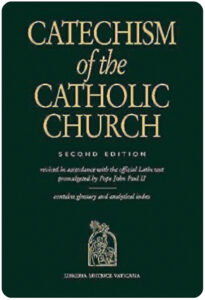 529 The presentation of Jesus in the temple shows him to be the firstborn Son who belongs to the Lord. With Simeon and Anna, all Israel awaits its encounter with the Savior—the name given to this event in the Byzantine tradition. Jesus is recognized as the long-expected Messiah, the “light to the nations” and the “glory of Israel,” but also “a sign that is spoken against.” The sword of sorrow predicted for Mary announces Christ’s perfect and unique oblation on the cross that will impart the salvation God had “prepared in the presence of all peoples.”
529 The presentation of Jesus in the temple shows him to be the firstborn Son who belongs to the Lord. With Simeon and Anna, all Israel awaits its encounter with the Savior—the name given to this event in the Byzantine tradition. Jesus is recognized as the long-expected Messiah, the “light to the nations” and the “glory of Israel,” but also “a sign that is spoken against.” The sword of sorrow predicted for Mary announces Christ’s perfect and unique oblation on the cross that will impart the salvation God had “prepared in the presence of all peoples.”
what Matthew says—the feasts of the Passover & of unleavened bread
To lay the foundation for correct reading of the Gospels, it’s significant that the Jewish perspective of the seven-day feast of Unleavened Bread be seen as the bigger part of the Hebrew-based memorial.  This moves full focus away from the Passover meal. In this section of the book of Exodus, the two feasts are separately stipulated, and the feast of Unleavened Bread is the one that involves memory of deliverance from slavery. Christians easily overlook the feast of Unleavened Bread, but deliverance came after the Passover for the Israelites. Turning to God’s Word author Matthew Phelps points out that for Christians as well, forgiveness of sins comes after Jesus’ sacrifice on the cross. Although the Church considers Easter and its octave the holiest time of the liturgical year, many Christians tend to downplay the octave.
This moves full focus away from the Passover meal. In this section of the book of Exodus, the two feasts are separately stipulated, and the feast of Unleavened Bread is the one that involves memory of deliverance from slavery. Christians easily overlook the feast of Unleavened Bread, but deliverance came after the Passover for the Israelites. Turning to God’s Word author Matthew Phelps points out that for Christians as well, forgiveness of sins comes after Jesus’ sacrifice on the cross. Although the Church considers Easter and its octave the holiest time of the liturgical year, many Christians tend to downplay the octave.
redemption—you could look it up in our archives
This section in the book of Exodus describes the drama of the LORD passing overthe Israelites when the  Egyptians are afflicted by the tenth plague. The thirteenth chapter goes on to describe what the Israelites must do to consecrate their own future first-born sons to God, a redemptive act. To learn more about the word “redemption,” read Lost in Translation, an online column in which Turning to God’s Word author Matthew Phelps helps readers connect with ideas expressed in the original languages of the Scriptures. New Lost in Translation entries are posted on Mondays, and past entries are archived on our website. Contact us if you’d like to receive Lost in Translation by email every week.
Egyptians are afflicted by the tenth plague. The thirteenth chapter goes on to describe what the Israelites must do to consecrate their own future first-born sons to God, a redemptive act. To learn more about the word “redemption,” read Lost in Translation, an online column in which Turning to God’s Word author Matthew Phelps helps readers connect with ideas expressed in the original languages of the Scriptures. New Lost in Translation entries are posted on Mondays, and past entries are archived on our website. Contact us if you’d like to receive Lost in Translation by email every week.
how long were the Israelites in Egypt?
The commentary “400 or 430 Years Living in Egypt?” on page 56 of You Shall Have No Other Gods: The Book of Exodus addresses Scripture passages that appear contradictory. The book of Exodus 12:40, which is included in the biblical text of this lesson, states: “The time that the sons of Israel dwelt in Egypt was four hundred and thirty years.” There are conflicting passages that suggest the Israelites were in Egypt 400 years. Scholars have been unable to determine the exact amount of time—or even when the Israelites were in Egypt or who was Pharaoh at the time of the Exodus. This debate probably doesn’t strictly matter as it’s doubtful that historical events occurred exactly the way that the book of Exodus describes. What does matter is that some form of the Exodus surely made a profound impression on the descendants of Jacob, to the extent that both Jews and Christians celebrate this memorial of God’s saving action thousands of years later.
t he best Catholic commentary about Scripture
he best Catholic commentary about Scripture
To find out more about how Church teaching is supported by Scripture passages in You Shall Have No Other Gods: The Book of Exodus, check out the Index of Citations in the Catechism of the Catholic Church. Links (Revised Standard Version Catholic Edition [RSVCE*]) to the primary Scripture passages in the lesson and relevant paragraphs in the Catechism are provided here. Not every passage in the biblical text for this Catholic study is referenced in a Catechism paragraph, however.
the book of Exodus 13:1–22—paragraph 1363
the book of Exodus 13:12–13—paragraph 529
ways our glossary might prove helpful
In addition to providing extra information about geographical locations, our glossary also points out  when a person or place is mentioned in the biblical text under more than one name or more than one spelling. If you can remember a name but aren’t sure in which lesson it shows up, you can find it in the glossary, which lists every proper noun that appears in the biblical text for every lesson in You Shall Have No Other Gods: The Book of Exodus.
when a person or place is mentioned in the biblical text under more than one name or more than one spelling. If you can remember a name but aren’t sure in which lesson it shows up, you can find it in the glossary, which lists every proper noun that appears in the biblical text for every lesson in You Shall Have No Other Gods: The Book of Exodus.
to learn more, read more Scripture
If you’re having difficulty with a particular passage of Scripture, it can be helpful to read the relevant  cross references—but looking these up can take time. To make that easier, we’ve compiled the cross references from the Revised Standard Version Second Catholic Edition (RSV2CE)—the translation that we reprint in our study books. That list can be found at the top of every online study page accompanying this study, and it includes links to each of the cross references in the primary biblical text for You Shall Have No Other Gods: The Book of Exodus.
cross references—but looking these up can take time. To make that easier, we’ve compiled the cross references from the Revised Standard Version Second Catholic Edition (RSV2CE)—the translation that we reprint in our study books. That list can be found at the top of every online study page accompanying this study, and it includes links to each of the cross references in the primary biblical text for You Shall Have No Other Gods: The Book of Exodus.
don’t forget about our indexes & extra online material

 If you’re trying to locate information about a specific Scripture passage, you can look it up in the index at the back of the study book or sample lesson. If you want to find a particular commentary, you can look up its title in the topics index. To learn more about another book of the Bible for which there’s a Turning to God’s Word study, visit the online study directories to read the commentaries and watch any accompanying videos. Finally, if you have a question or would like to make a comment about any of our studies, you can use one of the “ask us your question” or “what do you think” buttons to email our authors.
If you’re trying to locate information about a specific Scripture passage, you can look it up in the index at the back of the study book or sample lesson. If you want to find a particular commentary, you can look up its title in the topics index. To learn more about another book of the Bible for which there’s a Turning to God’s Word study, visit the online study directories to read the commentaries and watch any accompanying videos. Finally, if you have a question or would like to make a comment about any of our studies, you can use one of the “ask us your question” or “what do you think” buttons to email our authors.
ex libris—Church documents & books about religious topics
Link to magisterial documents referred to in our Bible studies at ex libris—magisterial documents.  This listing includes significant recent encyclicals as well as a number of historical Church documents. Recommended books related to Scripture study can be found at ex libris—main bookshelf.
This listing includes significant recent encyclicals as well as a number of historical Church documents. Recommended books related to Scripture study can be found at ex libris—main bookshelf.
wondering how to pronounce some of these words?
The following link is to a reading from the New International Version (NIV) Bible. To listen, open the link and click on the audio icon above the printed text. Although not taken from the translations used in our study materials, the NIV reading provides an audio guide to pronunciation of words in this lesson’s primary biblical text. A close online version of the translation of the Bible used in Catholic liturgy in the United States as well as an audio guide for daily Mass readings for the current month can be found on the website of the United States Conference of Catholic Bishops (USCCB).
the book of Exodus 12:29—13:16 (NIV)
 close with Bible-based prayer related to this lesson
close with Bible-based prayer related to this lesson
Many of our Catholic study groups like to conclude their discussions with a prayer based on the scriptural focus of their lesson, and some participants include Scripture-specific prayer in their individual study. If you’re uncomfortable composing your own Bible-based prayers, you can follow our four easy steps. If you prefer, you can use the following short prayer based on this lesson’s text from the book of Exodus.
O LORD, grant us to see the wisdom
of the Passover in Egypt as a foreshadowing
of your Son’s Passover from death into eternal life.
Allow us to appreciate your great love for humanity
and to strive to seek your will in all that we do.
We ask this in the name of Jesus Christ,
who underwent death on the cross
in order to bring us the opportunity for eternal life. Amen.
Lesson 12 Deliverance Through the Red Sea, the book of Exodus 13:17—14:31
Lesson 10 A Plague of Darkness & a Final Warning, the book of Exodus 10:21—12:28
you also may like our study of the Gospel According to John
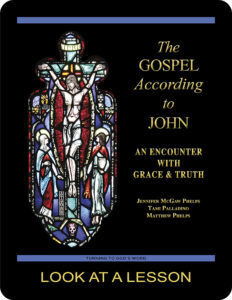 The Gospel According to John: An Encounter with Grace & Truth, a 25-lesson Catholic Bible study with an imprimatur, examines the Fourth Gospel’s view of Jesus Christ as the Son of God, with special emphasis on the institution of the sacraments of the Church as the means by which Christians are purified and made holy. This recently revised study includes maps and additional commentary, and takes a closer look at the way in which Jesus relates to individual men and women. Click on the book’s cover to view a sample lesson.
The Gospel According to John: An Encounter with Grace & Truth, a 25-lesson Catholic Bible study with an imprimatur, examines the Fourth Gospel’s view of Jesus Christ as the Son of God, with special emphasis on the institution of the sacraments of the Church as the means by which Christians are purified and made holy. This recently revised study includes maps and additional commentary, and takes a closer look at the way in which Jesus relates to individual men and women. Click on the book’s cover to view a sample lesson.
start a Turning to God’s Word Bible study
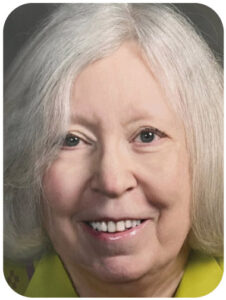 Thank you for your interest in You Shall Have No Other Gods: The Book of Exodus.
Thank you for your interest in You Shall Have No Other Gods: The Book of Exodus.  Information about beginning a Turning to God’s Word Bible study can be found at start a Bible study. Tami, Matthew, and I are available to answer your questions and to offer support. You may use this email to contact us directly if you’re interested in starting a Turning to God study or in having your study schedule listed with other TtGW study groups on our website. —Jennifer
Information about beginning a Turning to God’s Word Bible study can be found at start a Bible study. Tami, Matthew, and I are available to answer your questions and to offer support. You may use this email to contact us directly if you’re interested in starting a Turning to God study or in having your study schedule listed with other TtGW study groups on our website. —Jennifer
*There are seven deuterocanonical books in the Old Testament—the Books of Tobit, Judith, Wisdom, Sirach, Baruch, and First and Second Maccabees, as well as some passages in the Books of Esther and Daniel. Protestants usually refer to these works as “apocryphal,” a word that means “outside the (Protestant) canon” because they’re excluded from most Protestant Bibles. The word “deuterocanonical” means “second canon”; Catholics use that word to refer to any section of the Catholic Old Testament for which there are no extant, or existing, Hebrew manuscripts. All of the deuterocanonical books appear in the Septuagint, the earliest remaining versions of which date to the 1st century B.C. This Greek translation of the Old Testament was in common use by Jews at the time of Jesus—but the same books aren’t found in existing Hebrew manuscripts, which aren’t as old as the oldest version of the Septuagint. Learn more by reading How Do Catholic & Protestant Bibles Differ?
Turning to God’s Word printed Bible studies use the 2006 Revised Standard Version Second Catholic Edition (RSV2CE) translation for all Scripture references except those to the Psalms, which are taken from The Abbey Psalms and Canticles, prepared by the Benedictine monks of Conception Abbey and published in 2020 by the United States Conference of Catholic Bishops (USCCB). All Scripture links for the online study pages for You Shall Have No Other Gods: The Book of Exodus are to the 1966 Revised Standard Version Catholic Edition (RSVCE) translation. The New International Version (NIV) audio recordings follow the same chapter and verse numbering as the RSV Catholic translations, but the NIV translation doesn’t include the deuterocanonical books and passages.
The 1966 RSVCE uses archaic pronouns and verb forms such as “thee,” “thou,” “didst” in the Psalms and in direct quotations attributed to God. The 2006 RSV2CE replaces those with more accessible English. The few significant translation changes in the RSV2CE include rendering almah as “virgin” in the Book of Isaiah 7:14 and restoring the term “begotten” in the Gospel According to John 3:16.
Numbering varies for some passages in this Bible study. Turning to God’s Word studies (print and digital) follow the numbering in the Revised Standard Version Catholic translations (RSV2CE and RSVCE). Discrepancies in the New American Bible Revised Edition (NABRE) are noted in the Index of Scripture Citations in the study book and the online sample.
 You can learn more about the Psalms by viewing a sample lesson from the Turning to God’s Word Catholic Bible study Sing a New Psalm: Communicating with God Through the Prayers of the Church—Volume I: Lauds & Vespers. The second part of that study, Sing a New Psalm: Communicating with God Through the Prayers of the Church—Volume II: Vigils, Day Prayer & Compline, is scheduled for publication in 2025. Some verse numbers may vary in different translations of the Psalms.
You can learn more about the Psalms by viewing a sample lesson from the Turning to God’s Word Catholic Bible study Sing a New Psalm: Communicating with God Through the Prayers of the Church—Volume I: Lauds & Vespers. The second part of that study, Sing a New Psalm: Communicating with God Through the Prayers of the Church—Volume II: Vigils, Day Prayer & Compline, is scheduled for publication in 2025. Some verse numbers may vary in different translations of the Psalms.
